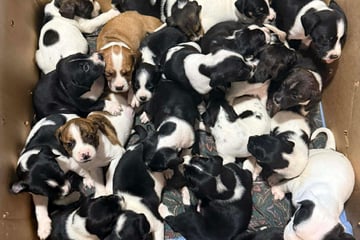Why is my dog constantly licking its paws? Here's why it can be dangerous
Is your dog constantly licking its paws? Find out possible reasons why, home remedies, and tips on paw care in TAG24's handy dandy dog guide.
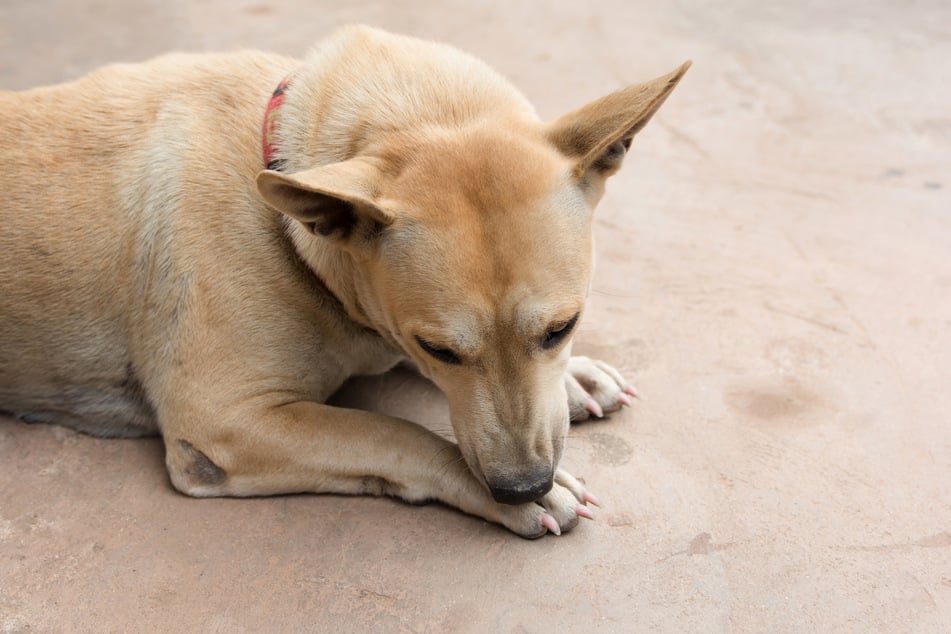
Dogs licking their paws is normal behavior, but owners should remain vigilant and not underestimate this habit.
There can be various reasons why dogs lick their paws. Sometimes it's nothing to worry about, but other times licking is a sign of psychological problems or life-threatening illnesses.
For instance, the dog could be infected with parasites. In addition, dog saliva damages the skin on the paws over time.
It is important to differentiate between dogs that lick their paws infrequently and those that lick them constantly.
Observe your animal companion and pay attention to how often he licks his paws.
Reasons why a dog may lick its paws
If dogs bite and lick their paws and toes, this cools their paws and initially relieves itching or irritation. If they do this briefly, then the licking is harmless – but it should never become a constant habit.
Otherwise, the saliva will destroy the natural protective barrier of the skin on the paws over time, which means that pathogens could easily infect the area. An examination by a vet will provide information about possible reasons for the paw licking.
If the dog regularly licks its paws, it may already have psychological or physical complaints.
Psychological triggers
Potential causes of dog paw licking can lie in the dog's psyche. Some dogs lick their paws out of boredom. Dogs release happiness hormones (endorphins) when licking, which is why they like to do it and feel good about it.
Licking can also serve to compensate for fear and insecurity. If dogs are left alone for too long, this triggers stress, which can also cause them to lick and bite their paws.
Physical causes
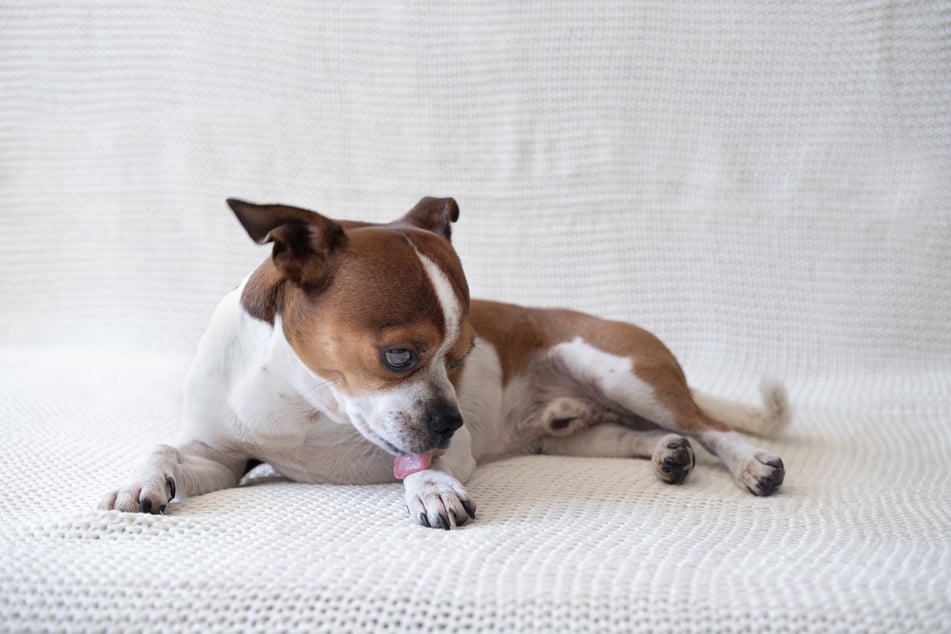
However, the licking may be due to physical causes, which can include
- inflammation
- fungal infections
- bacteria
- wounds
- growths, tumors
- abscesses
- matted fur
- allergies
- long nails
- broken nails
- heat
- itching due to dry skin
- parasites such as ticks or fall grass mites
- contamination
- foreign bodies such as stones or glass
- burns, e.g., in summer due to hot asphalt
- irritation from plants such as nettles or hogweed
Home remedies and other tips for dog paw licking
Depending on the cause of the licking, there may be a different need for action. For all health problems, it is always advisable to consult a vet.
If the dog suffers from itching, some home remedies can provide relief. One option would be to apply aloe vera gel to the affected areas three times a day.
A cooled decoction of dried marigold leaves massaged into the skin three times a day can also help: boil half a liter of water with a handful of leaves, then remove the leaves and leave to cool.
Chamomile tea with fennel seeds is also effective. Leave the cold tea to infuse overnight with about two tablespoons of crushed fennel seeds and then massage into the itchy areas.
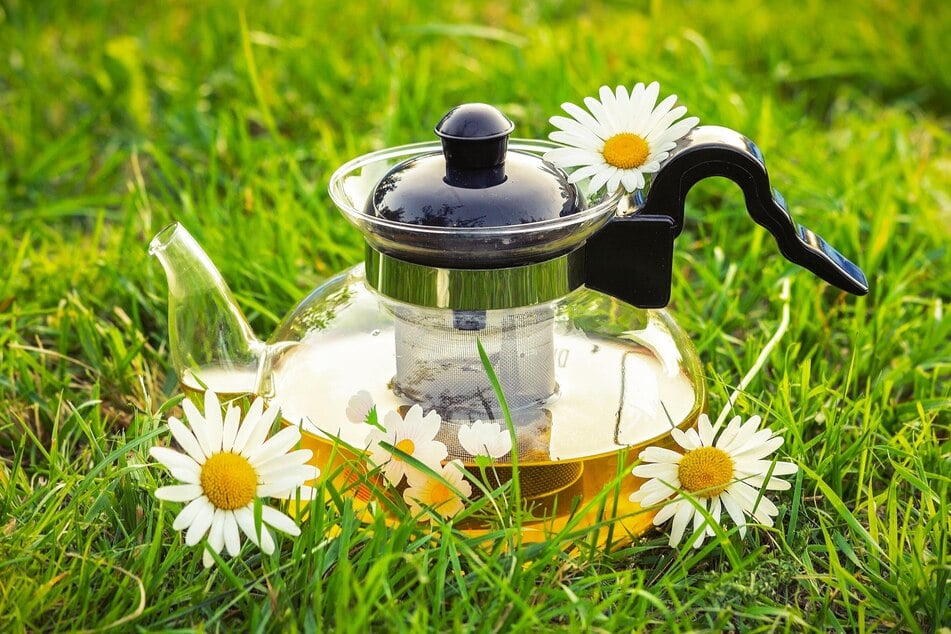
Diluted apple cider vinegar can help with dry skin or fleas. It is important not to use it on open wounds or inflammations, however. Apple cider vinegar can be used as a spray, rinse, or bath.
If a foreign body is discovered during the examination, it should be carefully removed with tweezers. Before doing so, the area should be depilated and the wound washed and disinfected. A bandage should then be applied, which must not be too tight. It is important to pay attention to the padding of the bandage. In the event of heavy bleeding, inflammation, or if you cannot remove the foreign body yourself, a visit to the vet will be necessary.
In the case of open wounds, the dog should be prevented from licking – otherwise, the area will become even more inflamed and will not heal. Bandages should remain in place as long as the dog wants to lick.
How can you stop your dog from licking its paws?
There is no point in trying to stop your dog from licking its paws, but it is better to create rewarding alternatives.
If the dog has difficulties when home alone, then it needs to be trained. In general, dogs should never be left alone for too long, but there are tricks and exercises that can help the dog stay alone for a while.
If your dog is bored, he will try to occupy himself by licking and having fun. In this case, he doesn't always need more exercise. If dogs are outside a lot and almost never alone, they can still get bored. They lack challenges and learning tasks.
Owners can integrate more games into everyday life that challenge the dog. If you take the pup on new walks through unfamiliar areas, it is more exciting than walking the same route every day. It is also helpful to alternate the animal's toys and play partners.
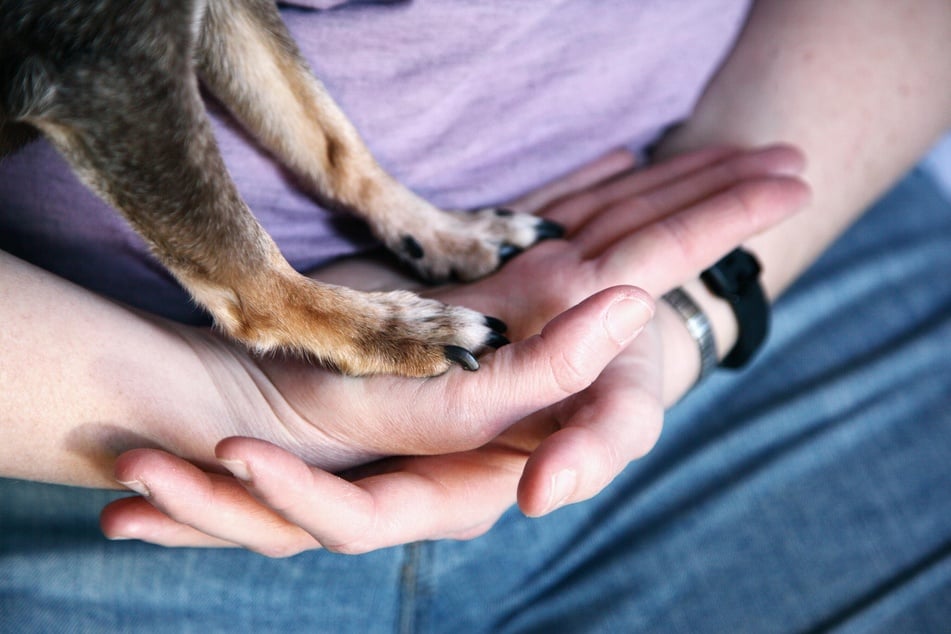
How can I prevent dogs from licking their paws?
1. Regular inspection and care of the dog's paws
You should check and clean your dog's paws after every walk. The command "give paws" and a treat afterwards help to make this routine easier for your dog.
Lukewarm water, mild dog shampoo, and nourishing balm are suitable for cleaning and grooming. Regular application of cream keeps the paw pads elastic.
If the paws are wet, they should always be dried well.
If the dog's hair length requires it, the fur on the paws and especially between the toes should be trimmed.
Part of the grooming process is to trim the pupper's nails. There are special clippers for this. However, care must be taken not to cut too close to the quick. Nails shouldn't be cut too far away, either. If you are unsure, the vet or groomer can help.
2. A healthy diet for your dog
A balanced and nutritious diet has a positive effect on the dog's immune system. When it comes to dog food, owners should pay attention to good quality. In the case of intolerances or allergies, you could switch to allergen-free or grain-free dog food.
If the dog food contains omega-3 and omega-6 fatty acids, this has a positive effect on the dog's skin and immune system.
The breed and nutritional requirements of the dog are important to consider when choosing the best food. If you are unsure, you can seek advice from a vet or dog breeder. You can also make your own dog food.
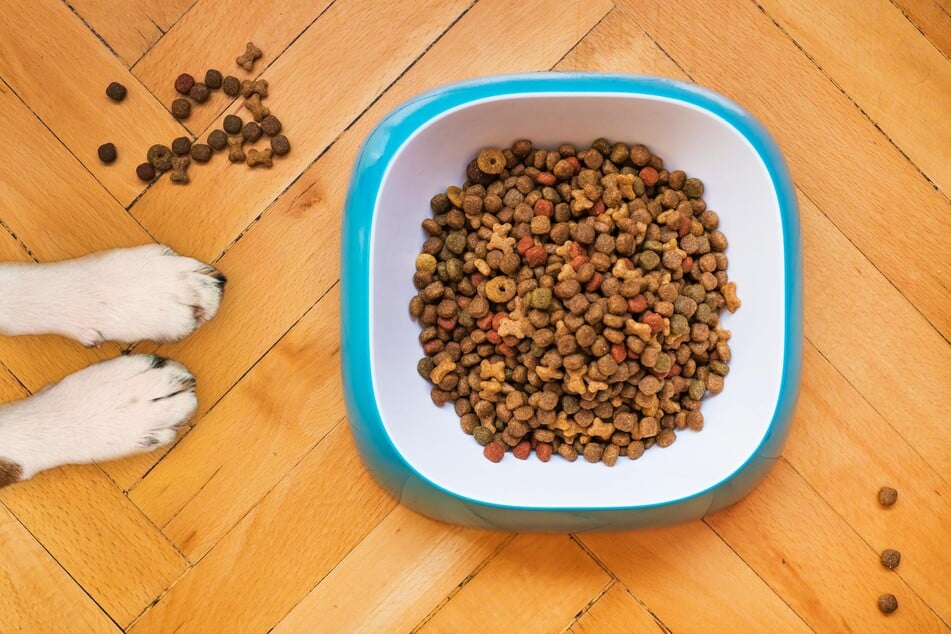
3. Cleaning the dog's environment
Dogs are also exposed to irritants and pollutants in the household. To minimize these, it is necessary to regularly clean lying areas and the animal's environment. It is also important to ensure that dogs cannot ingest foreign objects such as glass splinters in the household.
If the dog is allergic to allergens and other chemicals, it is advisable to use natural and gentle cleaners. Dog blankets, stuffed animals and cushions should be hot-washed more often. Ideally, chemical detergents should be avoided, as these can also cause allergies and irritation.
Tip: Air-conditioned rooms and humidifiers prevent heavy sweating and dry skin in dogs.
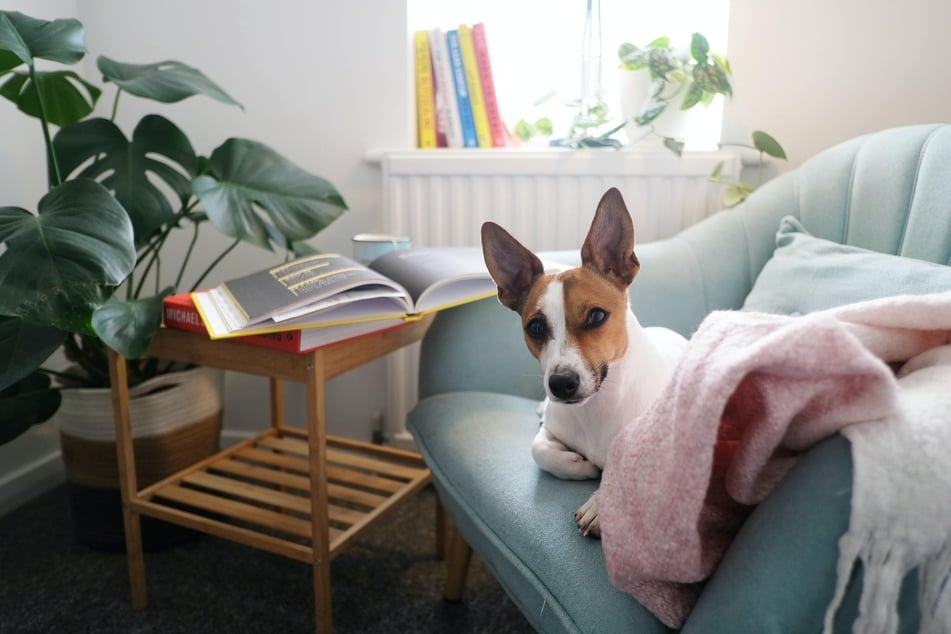
4. Precautions when walking your dog
The heat in summer and the cold in winter put a strain on dogs' paws. Dog shoes are a good way of preventing burns, frostbite, or reactions to road salt in sensitive dogs. If you get your dog used to them from a young age, the shoes won't bother him.
In winter, marigold ointment, some cooking oil, and Vaseline can be protective for the paws. Make sure that they do not contain any toxic substances. Special creams from the vet protect the paws from burns in summer. If you are worried that the asphalt path is too hot, you can put your hand on the surface for seven seconds to check this. In summer, owners have to pay attention to a few things when they are out and about with their dog.
Natural paths, such as forest trails, are suitable for avoiding dangers. For safety and variety, dog owners can consider seasonal routes where the grass and nettles are not too high in summer or where there may not be too much snow in winter.
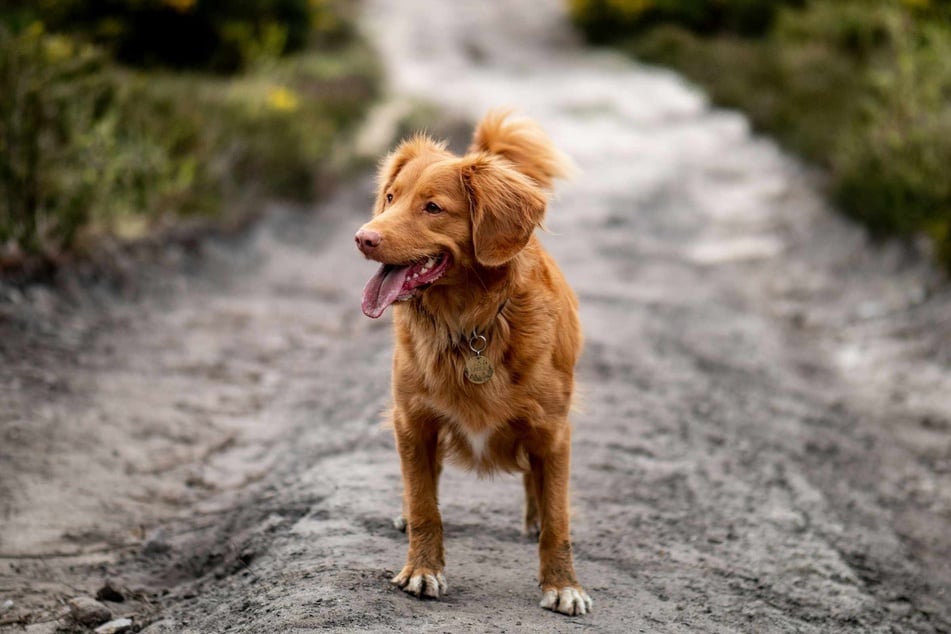
5. Attention and variety for the dog
To prevent the psychological causes of paw licking, dog owners should try to minimize stress and anxiety for the dog or avoid it. Dogs cannot be left alone for too long and need a lot of attention as they are pack animals.
In addition, a structured day with a balance between activities and rest periods is the basis for a balanced dog. Keep your dog sufficiently occupied and make everyday life exciting by providing variety.
Pay attention to the dog's needs: suitable games and activities depend on the breed and therefore on the dog's disposition.
Careful handling of the dog and maintaining personal hygiene and cleanliness in the environment can also prevent paw licking. If the dog still licks its paws and you are unsure of the reasons, you should always consult a vet.
Cover photo: 123RF/tevarak11
